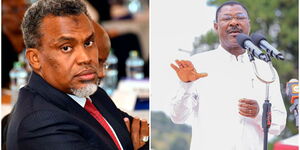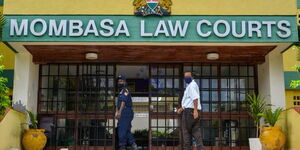The government has put pressure on Kenyan companies to disclose their secret investors and shareholders.
The new regulation has made it mandatory for wealthy individuals who own more than 10 percent shares of registered companies to disclose their information.
KRA, security agencies and the Financial Reporting Centre (FRC) will have access to KRA PINs, national ID or passport copies, postal addresses, residential addresses, occupations, telephone numbers and the date when the investors became beneficial owners of the said companies.
This requirement will reveal secret wealth held by Kenyans at the Nairobi Securities Exchange through nominees or proxies.
Companies have also been authorised to withhold dividends, block share transfers and end rights in board appointments as well as voting power to substantial investors who fail to provide their details to the government.
So far, only 57,000 of Kenya’s registered companies out of 590,000 have complied, forcing the government to push the deadline to July 2021.
According to data from NSE, 77 percent of investors’ wealth at the stock exchange is held by undisclosed shareholders.
Firms that fail to adhere to the new regulations risk a Ksh 500,000 fine and Ksh 50,000 penalty for every day they fail to comply with the new framework.
Through the new laws, the government hopes to unearth ill-gotten wealth and curb insider trading which is a financial crime in Kenya attracting fines up to Ksh 500 million.
A past study by the University of Texas-Austin, Brigham Young University, and Griffith University showed that Kenya had become a haven for shell companies and money laundering.
The researchers posed as money launderers, corrupt officials, and terrorist financiers to assess whether the formation of firms that would potentially be associated with money laundering or terrorism would trigger increased scrutiny.
The previous law protected companies from revealing the identities of their beneficial owners. The term refers to the true economic owners of the shares held in trust by any nominee.
Some billionaires who own companies through other people or through trusts prefer to remain anonymous to avoid tax obligations or government scrutiny.
According to the latest statistics by Knight Frank, Kenya has 42 individuals with more than Ksh3 billion and ranks 4th in Africa.
However, according to a 2020 report by Forbes Africa, none of the country’s super-wealthy made it to the list of top 20 richest Africans dominated by Egypt, South Africa and Nigeria.
Below is the list of top 20 richest Africans, according to Forbes Africa (2020)
- Aliko Dangote - Ksh1 trillion
- Nassef Sawiris - Ksh800 billion
- Mike Adenuga - Ksh770 billion
- Nicky Oppenheimer - Ksh770 billion
- Johann Rupert & family - Ksh650 billion
- Issad Rebrab & family - Ksh440 billion
- Mohamed Mansour - Ksh330 billion
- Abdulsamad Rabiu - Ksh310 billion
- Naguib Sawiris - Ksh300 billion
- Patrice Motsepe - Ksh260 billion
- Koos Bekker - Ksh250 billion
- Yasseen Mansour - Ksh230 billion
- Isabel dos Santos - Ksh220 billion
- Youssef Mansour - Ksh190 billion
- Mohammed Dewji - Ksh160 billion
- Aziz Akhannouch - Ksh170 billion
- Othman Benjelloun - Ksh140 billion
- Michiel Le Roux - Ksh130 billion
- Strive Masiyiwa - Ksh110 billion
- Folorunso Alakija - Ksh100 billion












